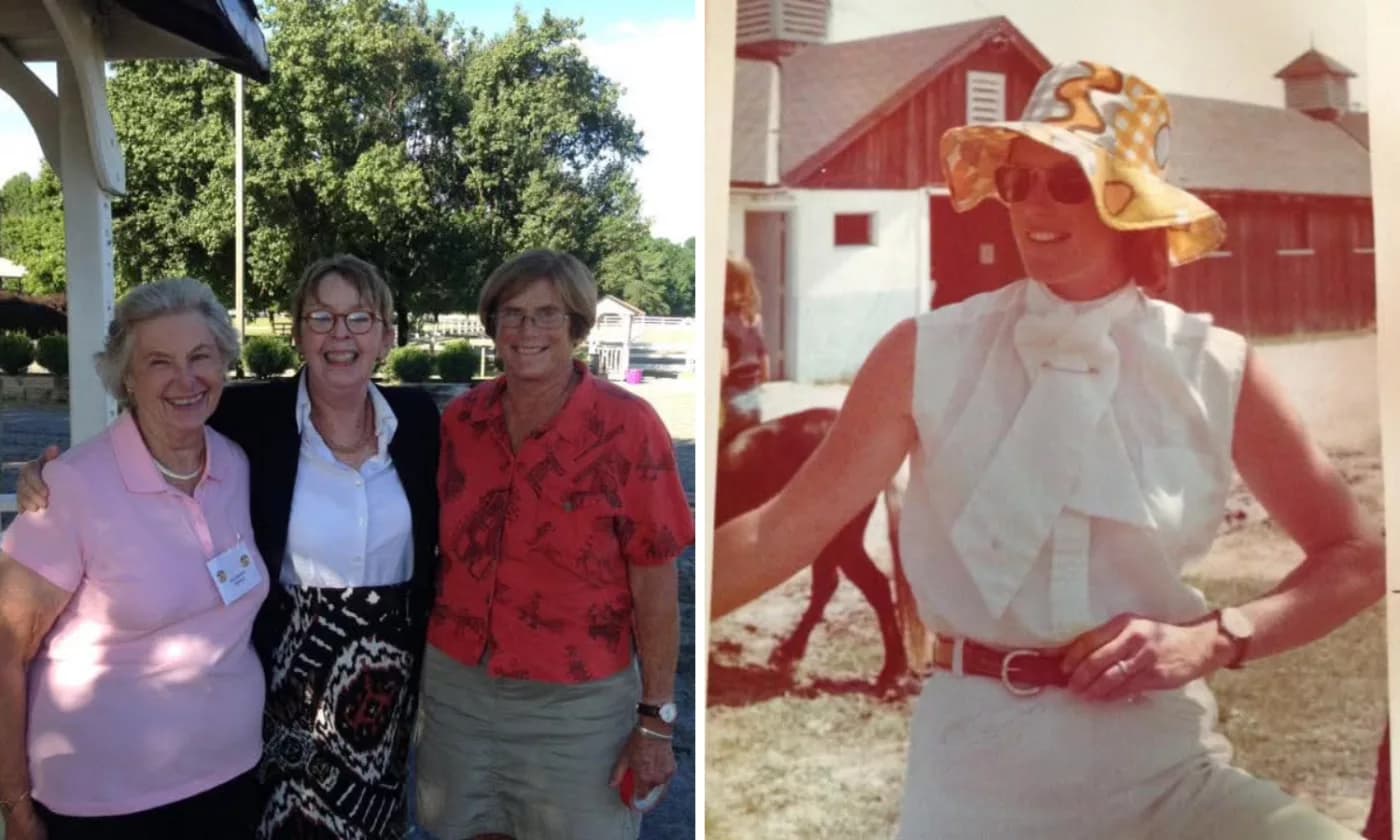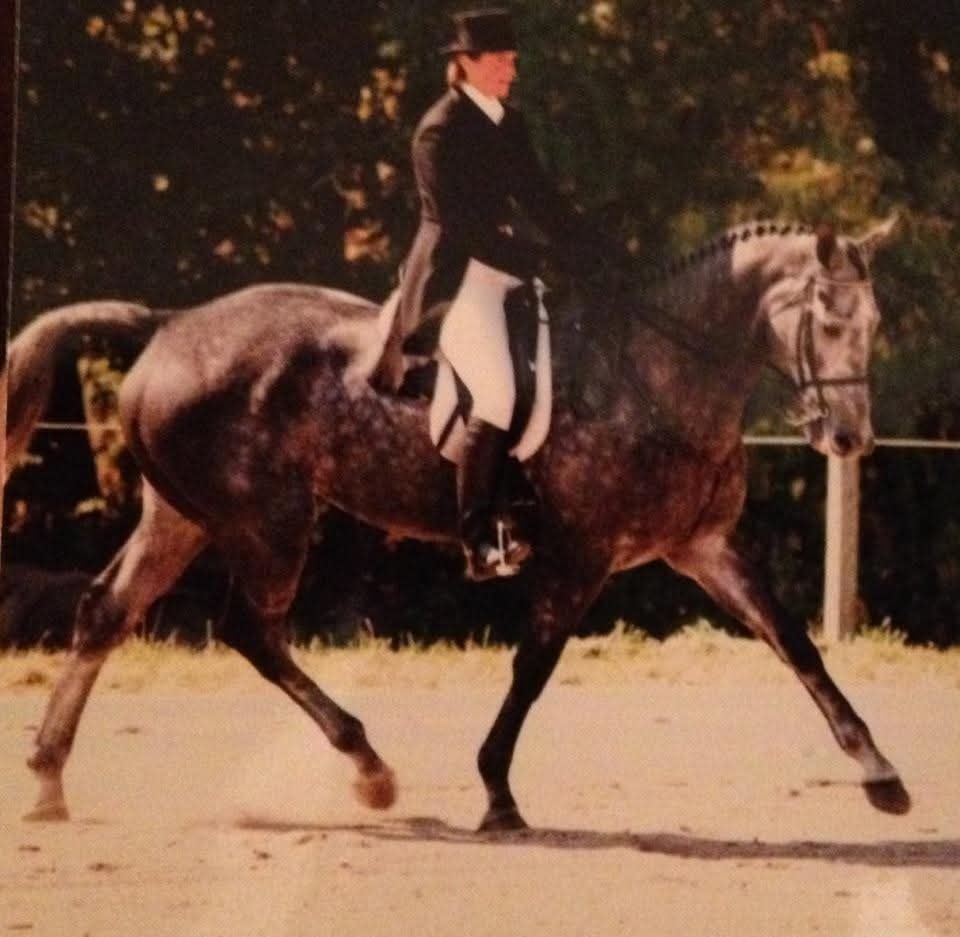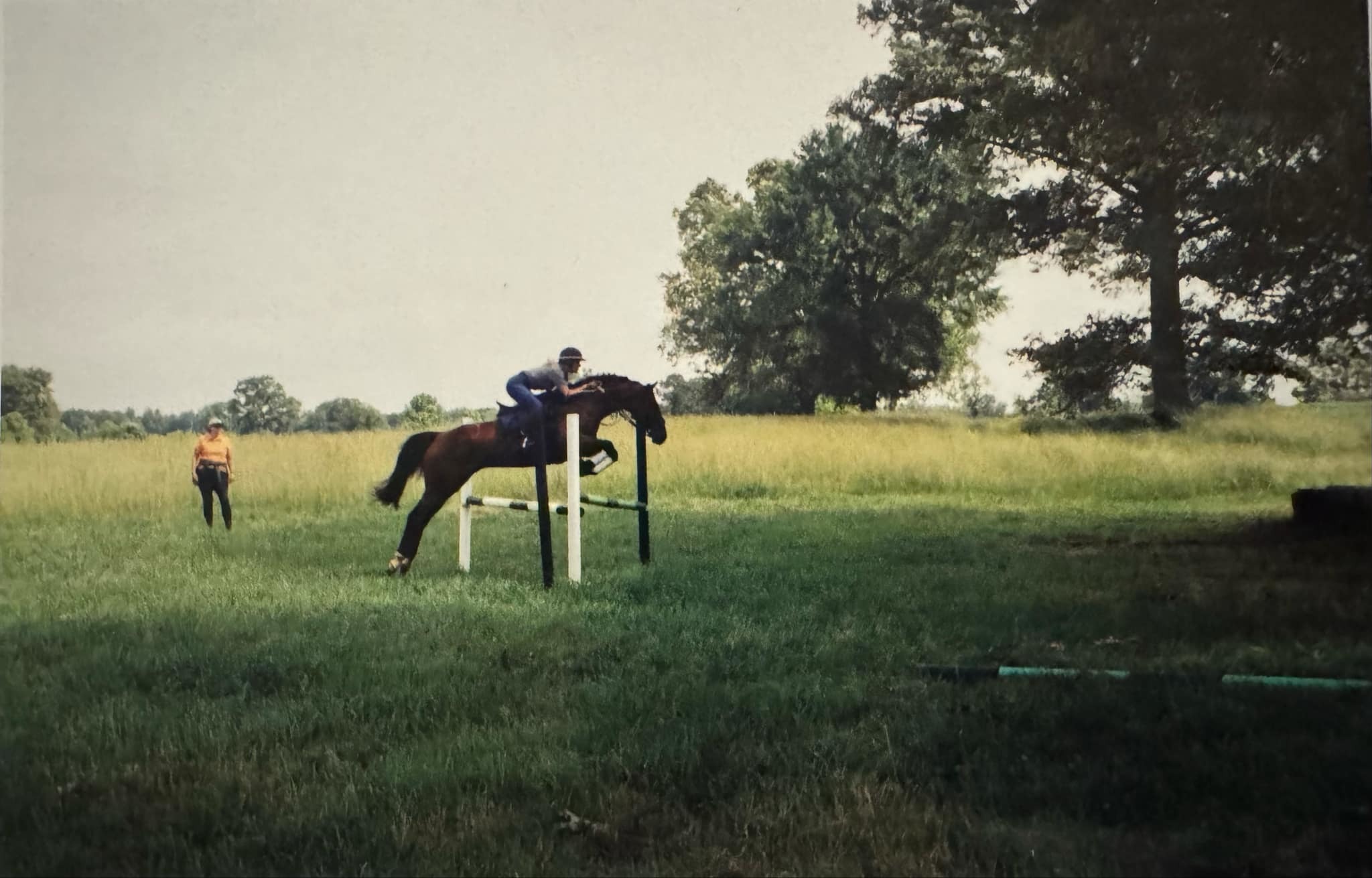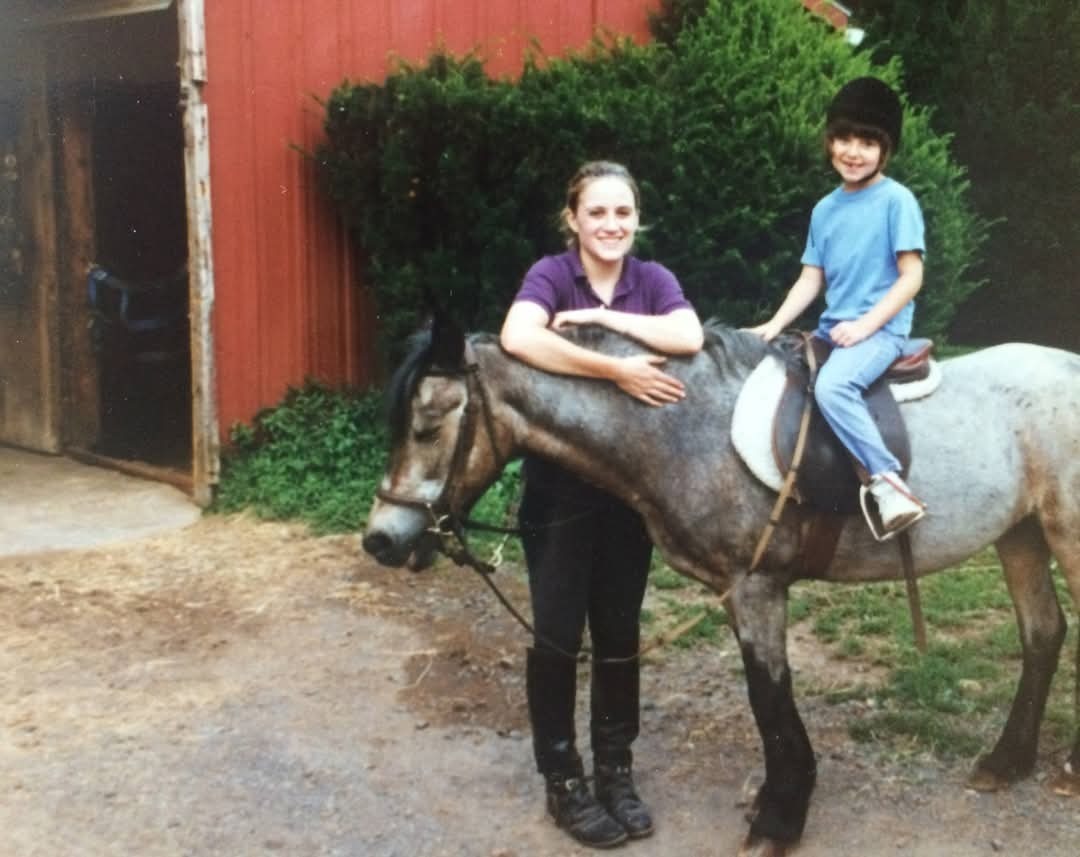For Longtime Organizer and Instructor Jane Cory, Education Has Always Been Paramount

For more than 50 years, Jane Cory has been an unsung hero of the sport. The Area II trainer, judge, and event organizer welcomed generations of riders of all levels to her family’s beloved Pleasant Hollow Farm in Coopersburg, Pennsylvania, ensured the success of multitudes of shows and horse trials each year, and shared her love of horsemanship to all her students. Because of her deep dedication to her role, and contribution to the sport of eventing, she was recently honored with the Andrew H. Popiel Trophy at the 2024 USEA Annual Meeting & Convention, which is given annually to organizers for their tireless commitment.
Cory credits her mother, Joan Cory, as the driving force behind her career, who instilled in her a passion for teaching. An educator by profession, Joan loved horses and boarded a few at the farm when she and her brother, John, were growing up.
“My mom loved to read books, and she taught herself about horsemanship,” said Jane. “In the summer, she would teach people beginner lessons.” Joan eventually left her teaching position at a local private school and committed to running the farm full time. “I went away to college, got married, came back, and just sort of fell into the business,” said Jane. “And meanwhile it was growing.”
Even though the facility became one of the most cherished eventing facilities in Area II, the family didn’t know much about the sport in the early days. As a young rider, Jane competed on the local hunter circuit and took dressage lessons with Susie Buchanan, who introduced her to eventing.
“She told me, ‘The horse you have right now would make a great event horse,’ ” Jane recalled. “And I asked her, ‘What’s that?’ So I joined Delaware Valley Combined Training Association not knowing anything.”
Her first event was Novice at Radnor (Malvern, Pennsylvania). “Novice was a bit different back then,” she added. “I walked around the course, and I almost didn’t go—I thought I was totally unprepared. I made it around with a few refusals…but I finished!”
Jane became enamored with the sport, and much like her mother, was eager to learn all she could. She attended clinics, took lessons, read training books, and got involved with different associations. In the early 70s, the family broadened their knowledge of the sport by attending eventing seminars and conferring with a local legend: Bruce Davidson. The Olympic gold medalist took them under his wing, offering advice on organizing horse trials at their facility and tips for building cross-country jumps (her brother took on this role with gusto).
In 1974, Pleasant Hollow hosted their first event. “Back in those days, you didn't have to be a licensed course builder or designer,” Jane said. “All you needed was a TD and judges. So it was a lot easier to get started. It just sort of blossomed from there.”
Meanwhile, as the farm became established in the eventing community, Jane continued honing her own skills. She’d competed several green horses at the lower levels but never had aspirations to continue up the ranks—until she was introduced to a 4-year-old who would change everything. Jane had been training with Davidson, who often came to the farm to teach, when he called to tell her about a horse she might like. “And, in his typical salesman’s way, he sold me the horse…but he was right. The horse was perfect—that was Tuppence.”

Jane and the dapple grey gelding rose through the levels together, and the highlight of their partnership came in 1990, when they were long-listed for the FEI Eventing World Championships (Stockholm, Sweden). “But as you know, they make it a very, very, very long list,” Jane said with a laugh. “Getting the education at the training sessions was amazing, even though I knew I wouldn’t make the team. All my riding was because I enjoyed it, not because I was striving to be selected or move on to the next level.”
During that time, Jane was running the business at Pleasant Hollow, her days filled with teaching lessons, managing working students, and running competitions. “When I was riding with Bruce seriously, I can remember driving in a two-horse trailer down the Pennsylvania turnpike with 'Pence,' taking a lesson, staying overnight, taking another lesson, driving home the next day, and then teaching all day,” she recalled. “When you’re young, you do what you do, right? I loved every second of it.”
The farm catered to riders of all levels, from 5-year-olds learning to groom and tack up ponies, to more advanced students. Cory also welcomed boarders, many of whom took lessons, but the barn focused on education, not competition. A few times each summer, however, they held schooling and recognized shows, offering low-level opportunities.
Many of the lesson horses were bought cheap or acquired by chance. The most expensive was a $1,500 Thoroughbred who couldn’t pass a vet check for upper levels but became their best lesson horse.
“One spectacular horse was named Dollar Spot,” said Jane. “He came from a kill pen to a rescue in Pennsylvania. I had an arrangement with the owner that if she had suitable horses, I would take two at a time to use for my working students. Then they’d have a project horse. When Dollar Spot came, he was so skinny and full of rain rot, we couldn’t even ride him for months trying to get him healthy.”
Dollar Spot ended up matching with one of her employees, Becca Diesinger, and years later, placed fifth in their first Advanced outing at the 2003 Fair Hill International Horse Trials (Elkton, Maryland). Jane kept the gelding for the rest of his life, sharing the ride on him with a former student, until he was fully retired.
While running Pleasant Hollow full time, Jane also taught at Delaware Valley College. “I enjoyed it, but man, was I exhausted those couple of years. I started as a part-time adjunct professor, only doing one or two riding classes that met twice a week, and eventually they talked me into becoming a full-time teacher. I did it, honestly, for the health insurance because I didn’t have any at the time. I actually got some of my best employees out of it—Becca came from there, and so did [cross-country course builder] Tyson Rementer.”
Jane’s home at Pleasant Hollow was always filled with people. “I grew up that way and carried on my mother’s tradition,” she said. “When she moved, I stayed, housing summer campers and working students who couldn’t afford lessons. They worked in exchange for riding time—the harder they worked, the more they got, even their own horse to ride.”

Another special student from Jane’s DelVal days in the mid-90s was Kelly Eaton.
“Jane has a great way of truly teaching a person, and I was taken in by that straight away,” Eaton recalled. “She relayed the info in such a way that even decades later I’m utilizing the same techniques. Her methods are true and real horsemanship that has held up through the test of time. Through watching her, I learned to pass much of that on to my own students.”
After graduating from DelVal, Eaton began training horses in Georgia for fox hunting. As she was heading off to Georgia, Jane handed her "Riding to Hounds in America" and said, “You’re going to need this.” She was right—and Eaton still has the book. Over the years, Jane came down to Georgia to teach clinics. “People loved to be a part of them not only because the information resonated with us but also because of her way of teaching,” Eaton said.
Even now the storied venue will always remain a large part of Eaton’s life.
“Pleasant Hollow very much holds a bit of a magic for me, and others I am sure,” said Eaton. “Jane was always working, always finding ways to improve upon the events held there. She also put up with a bunch of college kids descending on her life and handled us and our shenanigans with class. She taught me to teach kindly and with humor, and that sometimes you have to dig deep to keep moving forward. Jane taught me a level of focus on the horses that I hope never to lose. She wasn’t 'eagle eye' Jane for nothing.”
In the early 80s, one of Jane's boarders, Maude Court, helped set up a disabled riding program that operated out of the farm for about 10 years. “She put money into the venture and created the Court Center for Handicapped Riding. I was the administrator—I didn’t actually teach the lessons, but we hired someone who did that. We were lucky because we already had someone working for us who was very interested in handicapped riding, so she went through a program and got certified.”
From the 70s until the mid-2000s, Jane and her brother were hosting three events a year at Pleasant Hollow, but in 2007 that chapter of her life came to end with the sale of the farm after their parents passed away. As the farm was prepped for sale, she got her USEF ‘r’ judging license and also started working at Jersey Fresh International Horse Trials, which she would eventually co-organize with Morgan Rowsell.
To help fundraise for Jersey Fresh, Jane ran three horse trials at the Horse Park of New Jersey, which hosted the FEI event.
“If you don’t get enough sponsorship money, you’re always going to be in the red, so we needed something to bolster it,” she explained. “When I sold Pleasant Hollow, I thought, ‘Oh, this’ll be great!’ But then I realized after a bit that I was bored. I didn’t really have anything filling my day, and I was used to being busy all the time. So, when the opportunity came up to run the horse trials at the Horse Park, I thought, why not? I’d already created a base of volunteers—that’s the hardest thing in a new area.”
The horse trials continued to flourish, but Jersey Fresh faced its fair share of challenges. “It wasn’t a big venue, and it didn’t have a lot of amenities,” Jane said. “It didn’t have a lot of owner support, or cash prizes, or big parties. But it was like the grassroots of a three-day event. It did the best it could with what it had.”
The end point came in 2021 with the battle for dates on the USEF competition calendar. “It really threw us a curve ball,” said Jane. “We filled out mountains of paperwork, and we did our best, but we both knew we weren’t going to get [the date]. I was relieved, but Morgan was sad. It was financially difficult every year, but it really brought status to the Horse Park of New Jersey. It was an FEI competition, and it was something special for eventing that didn’t happen in other places near us.”
The loss of Jersey Fresh was a blow to the eventing community, but many still recognized Jane as the unsung powerhouse who worked tirelessly to provide enjoyable experiences for the competitors.
“Jane is one of those quiet, behind-the-scenes sorts, who moves mountains, while attracting little attention and even less credit,” said Carol Kozlowski, former USEA President and longtime competitor at Jane's events. “Her early competitions at her Pleasant Hollow Farm and then at the New Jersey Horse Park were thoughtfully produced by her incredible dedication and hard work."
After Jersey Fresh, Jane continued organizing events at the Horse Park, juggling countless tasks. But last year, she stepped back from her role, handing over the reins to Emily Holmes. “I didn’t stop doing it for any bad reason,” Jane said. “I just thought, as I get older, what can I give up to make my life just a little simpler so I have more time for myself.”
As a 50-year veteran of the sport, Jane's seen her fair share of changes.
“So much of me loves the past, but so much of me also realizes that the present and the future is better,” she said. “I think that’s what happens when people get older. The good old days were always better, right? Though one thing that’s been difficult is the ‘super-regulation’ of things. I know that’s part of the safety aspect, but it can be tough for an event organizer. For instance, if you have a certain number of entries, you need two technical delegates, even if you didn’t need that the year before. A lot of it can be confusing, so I’ve found myself moving away from that part of eventing, even though it was always a huge part of my life.”

Last year, she also retired from judging, instead choosing to focus her time on teaching, particularly adult amateurs who compete at Beginner Novice or below. “They’re so excited to learn anything,” she said. “One of my students is a 70-year-old woman with a delightful little Appaloosa. No one had ever taught her the reasoning behind things, like the importance of the outside rein. Every time she gets a little glimmer of something new, she’s thrilled.”
Though she’s no longer riding, organizing, or judging, the one thing she’s still embracing is her greatest love: education. “I’m just trying to allow myself to slow down a bit,” she said. “Teaching gives me so much pleasure, so that’s going to be the very last thing I give up.”















